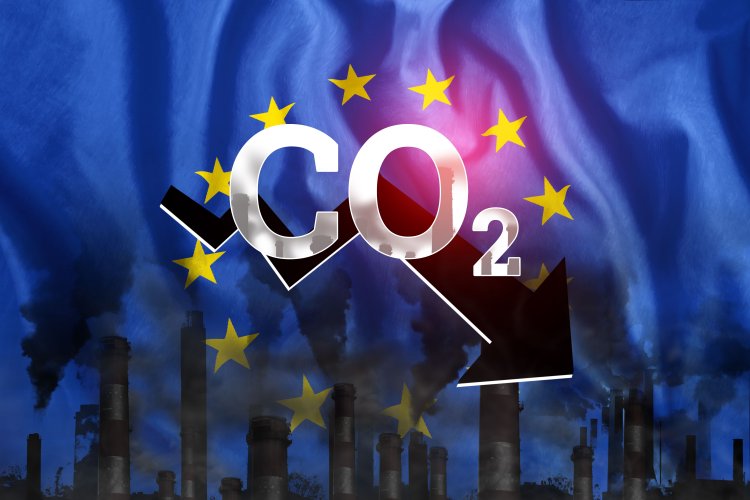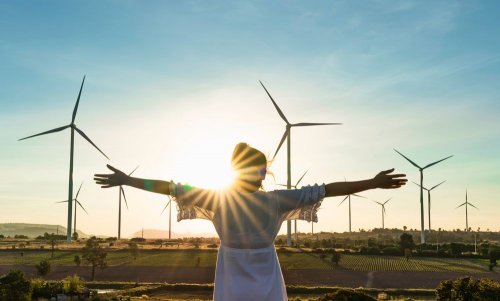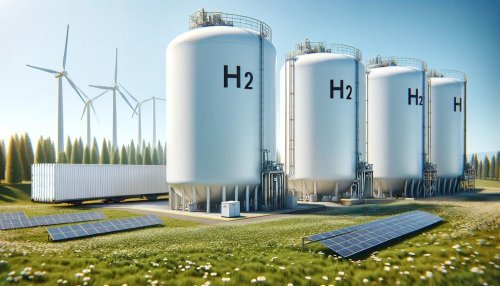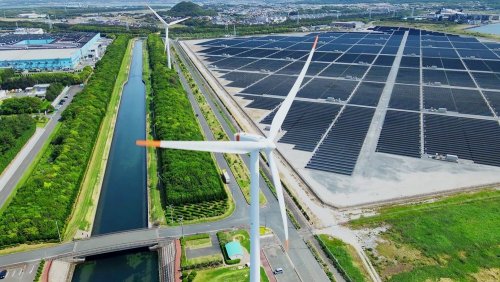The EU plans to increase the share of renewable energy in the bloc's total energy consumption to 42.5% by 2030, with an additional indicative increase of 2.5%, which will make it possible to reach 45%.
The EU Council and the European Parliament reached such a preliminary political agreement on Thursday, March 30, the EU Council reports.
The message emphasized that each EU member state will contribute to the achievement of this common goal. The agreement must be approved by both institutions.
It is noted that the negotiators agreed on more ambitious sectoral targets in transport, industry, construction and district heating and cooling. The sub-goals are designed to accelerate the integration of green energy in sectors where this process has been slower.
Transport
The press service explained that the agreement allows member states to choose between:
- a mandatory target of 14.5% reduction in the intensity of greenhouse gas emissions in transport through the use of RES by 2030;
- commitment to reach at least 29% share of RES in final energy consumption in the transport sector by 2030.
It is noted that the agreement sets a mandatory combined sub-target at the level of 5.5% for modern biofuels (usually obtained from non-food raw materials) and renewable fuels of non-biological origin (mainly green hydrogen and hydrogen-based synthetic fuels) in the share of RES for the sector.
It is emphasized that there is a minimum requirement for 1% renewable fuels of non-biological origin (RFNBO) in the share of RES supplied to the transport sector in 2030.
Industry
The message emphasized that the industry will increase the use of green energy by 1.6% every year. In addition, 42% of hydrogen used in industry must come from non-biological renewable sources by 2030 and 60% by 2035.
It is noted that the agreement provides an opportunity for EU member states to reduce the contribution of RFNBO to the use of hydrogen in industry by 20%, provided that:
- the national contribution of the member states to the mandatory common goal of the EU corresponds to their expected contribution;
- the share of hydrogen from fossil fuels consumed in the Member State does not exceed 23% in 2030 and 20% in 2035.
Construction, heating and cooling
"The agreement sets an indicative goal of achieving at least a 49% share of renewable energy in buildings in 2030," the report said.
The press service emphasized that the agreement provides for a gradual increase in the share of green energy for heating and cooling with a mandatory increase of:
- 0.8% per year at the national level until 2026;
- 1.1% from 2026 to 2030.
It is noted that the minimum average annual indicator, which applies to all member countries, is supplemented by additional indicative increases calculated specifically for each country of the bloc.
Bioenergetics
The message explained that the agreement strengthens the sustainability criteria for the use of biomass for energy production to reduce the risk of unsustainable bioenergy production. It applies the cascading principle to ensure that biomass is used according to its highest economic and environmental added value.
Acceleration of obtaining permits for projects
It is noted that the agreement provides for accelerated permitting procedures for RES projects. This will accelerate the deployment of green energy as part of the EU's REPowerEU plan to achieve energy independence from Russian fossil fuels after a full-scale invasion of Ukraine.
The message explained that the member countries of the bloc will develop zones for accelerating the development of renewable energy. In them, RES projects will undergo a simplified and quick procedure for obtaining permits.
"The deployment of renewable energy will also be considered to be of "higher public interest", which will limit the grounds for legal objections against new facilities," the press service emphasized.
Next steps
It is noted that the preliminary agreement will first be presented to the representatives of the EU member states in the Committee of Permanent Representatives of the Council of the EU, and then to the European Parliament for approval. The directive must then be formally adopted by the Parliament and then the Council before it is published in the EU Official Journal and enters into force.
The message emphasized that such an initiative is part of the efforts within the Fit for 55 package and the REPowerEU plan.
Earlier, EcoPolitic wrote, that the Council of the EU, the European Parliament and the European Commission adopted the Joint Declaration on the legislative priorities of the EU for 2023 and 2024, including initiatives related to the European green course for the near future.
As EcoPolitic previously reported, the Italian government is abandoning a number of environmental initiatives, in particular regarding the termination of financing of international fossil fuel projects.





